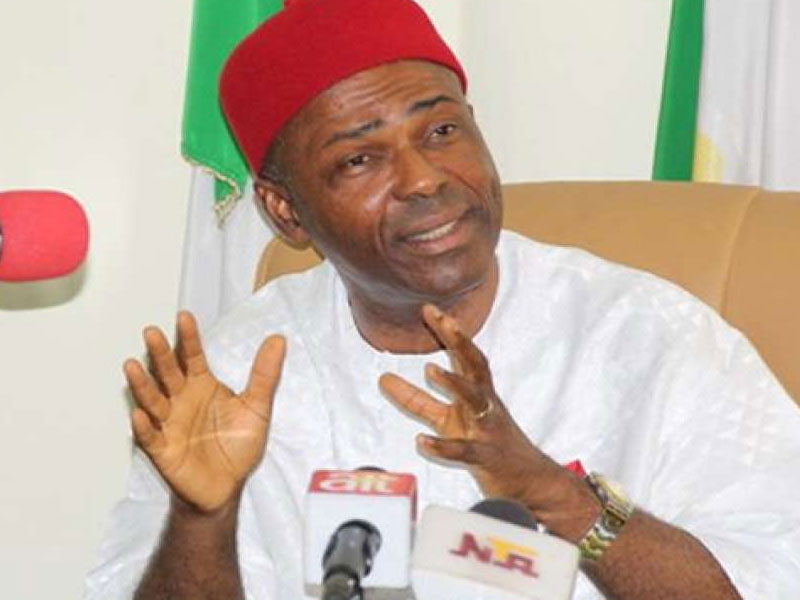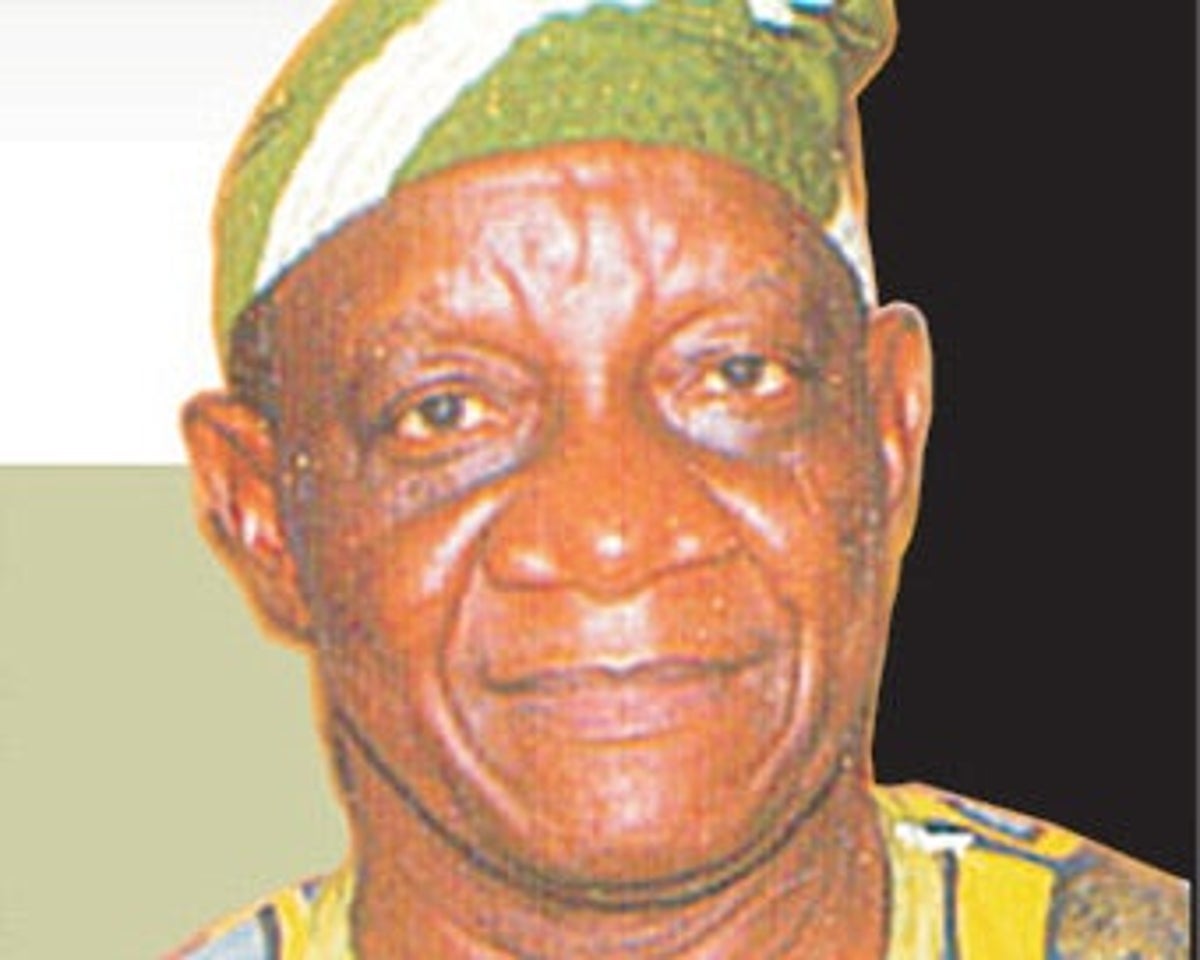By Dele Sobowale
“Success is unremitting attention to purpose.”Benjamin Disraeli, British Prime Minister, 1804-1881.
The Central Bank of Nigeria, CBN, and VANGUARD on February 26, 2021, organised another Economic Summit at the Eko Hotels and Suites – partly designed to find a way for Nigeria to attain sustainable growth.
That has proved elusive so far; and with Buhari in power till 2023, we might have to wait until after the next general elections to have any hopes of achieving it. Before you dismiss that statement as the pronouncements of a doomsayer, please be patient enough to examine the evidence.
“Those who deal in ideas, if they are wise, will welcome attack. Only a peaceful passage should dismay them for it proves the ideas do not affect anyone very much.” Professor John Kenneth Galbraith, 1908-2006.
I have written continuously on the Business/Economic pages of VANGUARD since 1988. Incidentally, my first Editor was Lanre Alabi who organised this latest Economic Summit which was a collaborative effort . I had an obligation to be there despite my feeling of Economic Summit fatigue in Nigeria.
Centralisation of power supply is inimical to rapid economic growth. America, India, China, Great Britain, South Africa and Brazil are all federating units. None operates a centralised power sector
The communiqués, the brilliant ideas which got participants clapping invariably end up gathering dust in Aso Rock. Occasionally, some useful slogans are plucked out and used for political purposes. They are then rapidly discarded when no more propaganda value can be derived from them.
The year 2020 ended two months and one week ago. Few Nigerians old enough can recollect that in 1992, a group of Nigeria’s best and brightest minds gathered in Abuja and pronounced that, based on planned sustainable growth, Nigeria would become one of the largest twenty economies in the world by 2020. That was the VISION 2020. I was the lone voice calling it DELUSION 2020. History would record that, in 2020, the Nigerian economy grew by -1.92 per cent. And, we are nowhere near top 20. Why? Because, the sustainable growth that would have made the vision possible was not achieved. The next question is: why? That is easy to answer; and the answer provides some of the reasons sustainable growth is impossible until after 2023.
THE THREE TRAPS HOLDING NIGERIA BACK
When in 1992, the First Nigerian Economic Summit Group, NESG, was convened by Chief Ernest Shonekan – the Head of Government under Military President Babangida – among the key recommendations were deregulation of the power sector, deregulation of the petroleum sector and return to true federalism.
There were others, but, the three will serve to illustrate how an extremely bad political system is making excellent economic management and sustainable growth impossible.
Centralisation of power supply is inimical to rapid economic growth. America, India, China, Great Britain, South Africa and Brazil are all federating units. None operates a centralised power sector. When unprecedented snow storm rendered Texas powerless, the rest of America went merrily on its own without power disruptions. Each year a hurricane destroys power lines in Florida, neighbouring states are never affected. The same is true of India, China and all the other nations organised around federalism. No disaster can render the entire nation without power supply.
I was in the group assigned to study and make recommendations on the Power Sector and it was our submission that as long as the Federal Government has almost exclusive monopoly on power supply sustainable growth will never be achieved. Power centralisation remains with us twenty nine years after. Furthermore, this government has no plans to decentralise.
Petroleum Industrialisation, or energy sector deregulation, is another stumbling block against rapid growth. The Nigerian National Petroleum Corporation, NNPC, is the only state-owned petroleum company in the world running at a loss. The Saudi counterpart, ARAMCO, recently went to the global financial markets to raise capital for development. The sum eventually raised was more than Nigeria’s total debt. That can only happen because ARAMCO is managed as a business intended to make money for Saudis. NNPC is managed as a scam for the benefit of a few. Until government gets its hands off NNPC it can never play the catalytic role it is meant to for growth to be sustained. Don’t be fooled; the Buhari administration is not keen on PIB. They intend to run it until 2023.
Fiscal federalism will continue to elude us as long as every month states must troop to Abuja to receive allocations and for as long as the Federal Government imposes on states the uniform salaries and wages workers will receive. The whole scheme makes no economic sense. In a typical month, Rivers or Akwa Ibom states would collect more allocations than Nasarawa, Gombe, Plateau and Ekiti states combined. Yet, they are supposed to pay public servants – from Governor to Gateman — the same salaries and wages. Does anybody need a degree in Economics to understand why the governors of the poorest states offer only empty promises and propaganda? How much is left for Ekiti for discretionary expenditure after paying the Governor, Deputy Governor, Chief of Staff, Special Advisers and legislators the same amount as Lagos?
Again, at the 1992 summit, I made the point that sustainable growth will be a mission impossible as long as most states are negative contributors to economic and social development of Nigeria. That was light years from where we are today. In the last five years, most states have added more burden to the Federal Government’s load. Heightened insecurity is not only diverting resources from growth-inducers, eg infrastructure, education, health, agriculture etc, it is discouraging foreign and domestic investments everywhere. Sustainable growth is impossible if the efforts are intermittent and mostly unpredictable.
Late Professor Galbraith, a Nobel Prize Winner in Economics, while teaching at Harvard University, ran a Summer Course in Boston in 1967 on the Planned Economies – Japan, USSR, Western Germany, India – among others. One aspect of the Course was the use of INPUT-OUTPUT TABLES for economic planning. One thing was common to the countries which experienced rapid growth at the time. It was their fanatic determination to achieve certain economic goals and the subjugating of everything else to the attainment of those objectives annually.
I imagine that is what Disraeli meant by “unremitting attention to purpose”. When Stalin’s government declared that 1,000,000 housing units would be built in four years, everybody from cement manufacturers to sand, nails, toilet pumps suppliers contracted to partake in the project knew that no excuses will be accepted. It was only by being reasonably sure of achieving that goal that they could face other issues with confidence. A situation in which too many economic goals are hanging unresolved invariably cannot stimulate sustainable growth because there is no solid foundation anywhere on which to build in subsequent years.
I left the joint CBN-VANGUARD Summit feeling depressed. Once again, some of our brightest and best minds are working hard – but in vain. The lone man talking in the wilderness probably had a better chance of influencing events than Emefiele, Fayemi, Bismacrk Rewane and Budget Director.


